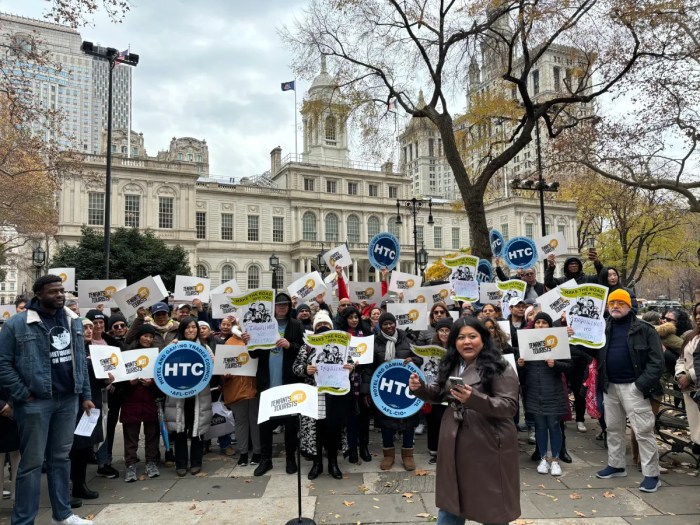By Rich Bockmann
The House Ethics Committee last week cleared U.S. Rep. Gregory Meeks (D-Jamaica) of any wrongdoing after an investigation into a questionable $40,000 loan he received in 2007 and failed to report on his financial disclosure statements.
The bipartisan committee unanimously concluded that while the congressman did not disclose the loan, he did so unknowingly and therefore will face no penalties.
“The committee recognizes that unknowing failures to report such items are not uncommon,” committee leaders said in a statement. “Such errors and omissions are typically corrected through amendments to financial disclosure statements and do not involve any further committee action.”
Meeks has been under investigation for the past two years and said he was looking forward to putting the matter behind him and concentrating on his agenda.
“I am pleased with the Ethics Committee’s decision, and I am glad that this matter is now closed,” he said in a statement. “My work in Congress, on the heels of the tragedy at Sandy Hook Elementary School, demands urgent focus on the need to strengthen federal gun laws in ways that will help prevent such heinous violence.
“We must work in a bipartisan manner to avoid a new fiscal crisis that will harm middle-class Americans and to get critical funding to my district and other areas that were devastated by Hurricane Sandy. This is where my focus remains.”
In January 2011, the Office of Congressional Ethics — an independent, non-partisan panel — began investigating a $59,650 home equity loan Meeks took out in 2010 to repay a $40,000 personal loan he received from a friend, Edul Ahmad, in 2007. Meeks had failed to list the money on his 2007, 2008 or 2009 financial disclosure statements, and the office said the loan lacked an interest rate or repayment terms.
Days after he took out the 2010 loan, Meeks issued a press release saying he had amended his previous years’ financial statements to reflect the $40,000 loan and its payment plus interest. But the office’s investigation alleged Meeks merely paid back more money to make it appear as if the loan was legitimate.
The office referred the matter to the Ethics Committee, which said Meeks could not produce a paper trail for the Ahmad loan because, he told them, he had “misplaced it.”
Lawyers for Ahmad told the committee there was no documentation, but he would decline a request for a voluntary interview and, if subpoenaed, would invoke his Fifth Amendment right unless he received immunity from prosecution.
Ahmad pleaded guilty in October to unrelated fraud charges.
“Considering the highly compromised credibility of Mr. Ahmad, unless he could provide some documentary evidence indicating that the payment to Rep. Meeks was not a loan — which his attorney has stated he cannot do — it would be unreasonable for the committee to conclude, on the basis of his testimony alone that Rep. Meeks had been untruthful to the committee in his sworn statement that such a document had accompanied the loan,” the committee said. “Therefore, the committee has decided to close its investigation regarding the allegation that Rep. Meeks received an improper gift from Mr. Ahmad.”
Reach reporter Rich Bockmann by e-mail at rbockmann@cnglocal.com or by phone at 718-260-4574.




































